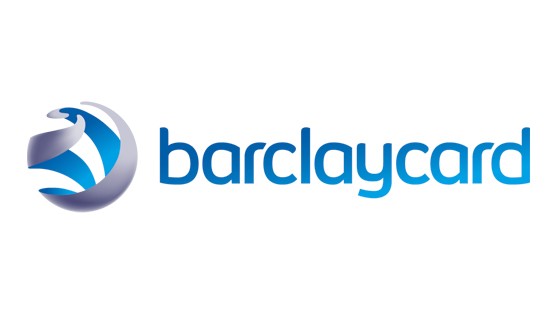Best Credit Cards to Consolidate Credit Card Debt (UK)

Are you currently in a position where you are holding credit card balances with multiple providers? If so, not only can it be a complex task to keep on top of what you need to pay and when, but it’s also likely that the interest fees are causing you financial stress.
The good news for you is that there are now a range of specialist credit cards that will allow you to transfer all of your outstanding balances to a single card. In fact, if you’re able to get yourself a new credit card with a lengthy 0% balance transfer offer, you can avoid paying any interest at all.
With that being said, we’ve created the ultimate guide to credit cards for consolidating debt. Within it, not only have we provided a simple explanation of how credit card debt consolidation works, but we’ve listed some of the best providers currently in the market.
-
-
What is debt consolidation?
First and foremost, it is important that you understand what debt consolidation actually is. In its most basic form, debt consolidation is the process of moving your outstanding debt balances from one provider to another.
For example, if you held £5,000 worth of debt with loan provider A, and £2,000 worth of debt with loan provider B – then by consolidating the debt, you would transfer both debt obligations to a NEW loan provider.
The reason for this is two-fold. Firstly, by moving two individual debt obligations to a single provider, you now only need to make a single monthly repayment. Otherwise, you would need to make a separate payment to each loan provider, subsequently increasing the risk that you miss a payment.
Secondly, and perhaps most importantly, by moving your debt to a new provider, you stand the chance to reduce your interest payments. For example, if you were paying 25% APR with both loan provider A and B, but your new loan provider charges 5%, then this is hugely beneficial.
So now that you know what debt consolidation is, let’s explore how this relates to consolidating your credit card debt.
What is credit card debt consolidation?
When it comes to consolidating your credit card debts with another credit card, the process works in exactly the same way as the example we gave above. However, unlike the consolidation of outstanding loans, credit card-to-credit card debt consolidation is typically transferred to a 0% balance transfer card. As such, you’ll get to avoid paying any interest for a set period of time. We’ll explain how this works in more detail further down. Nevertheless, let’s take a quick look at an example of how credit card debt consolidation works.
- You currently hold £2,000 with credit card provider A, and £9,000 with credit card provider B.
- You are paying 31% APR and 17% APR respectively on your outstanding balances, which is huge.
- You are approved for a new credit card that comes with a 0% balance transfer period of 9 months.
- All debts on credit card A and B are now cleared, so you now hold £11,000 worth of debt with your new credit card provider.
- As long as you meet your minimum monthly payments each and every month, you’ll pay no interest on the outstanding balance for the first 9 months, subsequently saving you HEAPS of money.

So now that you have a firm understanding of how debt consolidation works in the context of credit card balances, in the next section we are going to explain how balance transfer cards will allow you to achieve your goal of reducing your interest payments.
Balance transfer cards for debt consolidation
Note: As mentioned above, in order to maximize the benefits of obtaining a new credit card for the purpose of debt consolidation, you will need to ensure that the card specializes in balance transfers. It is really important that you understand how these work, so we’ve broken down the key points below.- Balance Transfer: As the name suggests, a balance transfer credit card will allow you to transfer your balances from another credit card, over to that of your newly obtained credit card. As such, your old credit card debts will (hopefully) be paid in full, meaning you’ll now hold a single debt on your new balance transfer credit card.
- Limits: Much like in the case of another other credit card product, balance transfer credit cards will come with a limit. In fact, you might find that you are offered a ‘Spending Limit’, and a ‘Transfer Limit”. For example, the card might give you a spending credit limit of £10,000, but only permit you to transfer upto £8,000 from other credit cards. Ultimately, you want to try and obtain enough credit to clear ALL of your outstanding balances.
- 0% Period: The overarching aim is to obtain a balance transfer credit card that offers 0% interest for a set period of time. In fact, you’ll want to choose a card that offers the longest 0% period, as this will give you more time to clear the balance in full.
- Transfer Fee: Although you’ll hopefully be able to obtain a 0% balance transfer credit card offer for the longest period possible, you still need to make considerations regarding the “balance transfer fee”. In a nutshell, this refers to the fee charged by your new credit card provider to transfer your old balances across. This typically averages 3% in the UK, although the odd 0% transfer fee does pop up from time to time.
Pros
- Reduce your interest payments
- 0% interest for a set period of time
- Move multiple balances to one card
- Clear debts with other credit card providers – improve credit score
Cons
- Credit limit might not be enough to clear all cedit card debts
- If you miss one payment, you’ll no longer get the 0% interest offer
Criteria used to rank the best credit cards
- Whether the card offers 0% interest
- Amount of credit limit available
- What % of credit limit can be used for balance transfer
- Length of 0% interest offer (in months)
- Balance transfer fee
- Eligibility requirements
Top 5 debt consolidation credit cards
Virgin Money - 0% for 29 Months
If you’re looking for one of the longest balance transfer credit cards for your debt consolidation needs, then look no further than Virgin Money. In a nutshell, the credit card offers 0% on balance transfers for a whopping 29 months.
Moreover, unlike some of the other credit cards we will discuss further down, the Virgin credit card guarantees that you will get the full 29 months. However, this is of course on the proviso that your application is approved. In terms of the amount of credit on offer, this will depend on your individual credit profile. You can find this out risk-free once you go through the pre-approval application.
In terms of the fundamentals, you need to transfer your outstanding credit card balances across within 60 days of being approved, and there is a 3% balance transfer fee to contend with. As such, if you were transferring a total of £5,000, then you would pay a one-time fee of £150. This is, however, industry standard.
It is important to note that you MUST repay the minimum balance each and every month to retain the 0% interest offer for the full 29 months. If you don’t, you’ll revert to the standard APR rate of 21.9%. In terms of the minimum payment itself, this will be the greater of £25 or 1% of your outstanding balance.

- 0% for 29 months
- 3% transfer fee
- Must transfer balances within 60 days of approval
- APR rate of 21.9% if you miss a payment
MBNA - 0% for upto 29 months
MBNA is a direct competitor of Virgin Money in providing the longest balance transfer credit card in the market. As such, the credit card offers a super competitive 0% balance transfer for upto 29 months. However, there are a number of important differences that need to be considered.
Firstly, unlike the Virgin credit card, there is no guarantee that you will get the full 29 months at 0%. Even if you are approved for the card, you might end up getting fewer months. Secondly, the balance transfer fee will depend on your individual credit profile.
For example, those of you with a good credit rating are likely to get a fee of just 2.75%, which is lower than Virgin. However, if your credit is deemed less attractive to MBNA, then you could end up paying a balance transfer fee of 3.49%.
Nevertheless, in terms of the specifics, you’ll also have 60 days to complete your balance transfers from the date you are approved. Furthermore, if you end up missing a monthly payment, you will instantly revert back to the card’s standard rate. This can sit anywhere between 20.93% and 27.93%. Much like Virgin, this needs to be the greater of £25 or 1% of your outstanding balance.
Our Rating

- 0% for 29 months
- 2.75% – 3.49% transfer fee
- Must transfer balances within 60 days of approval
- APR rate of between 20.93% and 27.93% if you miss a payment
Sainsbury's Bank – 0% for upto 20 months
UK supermarket giant Sainsbury’s has also entered the hugely competitive 0% credit card arena. The banking branch of the company now offers 0% balance transfers for upto 20 months. On the one hand, this is less competitive than both MBNA and Virgin – at least in terms of the length of the 0% interest period.
Moreover, much like MBNA, even if you are accepted there is no guarantee that you’ll get the full 20 months. However, what sets the Sainsbury’s Bank credit card apart is that it does not charge a balance transfer fee. As such, if you were to transfer a total of £10,000 over to your Sainsbury’s Bank credit card, you can save yourself the £300 (3%) that Virgin Money would have otherwise charged you.
We should also note that Sainsbury’s Bank gives you upto three months to transfer your balances across, which gives you an extra 30 days over the other two providers we have discussed thus far.
As is industry standard, you’ll need to clear your balance each and every month to retain your 0% offer. If you don’t, you’ll then be forced to pay 20.95% on your outstanding balance, subsequently rendering the credit card redundant for the purpose of debt consolidation.
Our Rating

- 0% for upto 20 months
- 0% transfer fee
- Must transfer balances within 90 days of approval
- APR rate of 20.95% if you miss a payment
NatWest – 0% for 23 months
High street bank NatWest currently has one of the best balance transfer offers in the market. Take note, you do need to have an account with the bank to get its hallmark balance transfer offer, however, this can easily be done online in a matter of minutes. Nevertheless, the Natwest credit card offers 0% on balance transfers for up to 23 months.
Firstly, you’ll get the full 23 months if you are approved, which is great. Secondly, much like in the case of the Sainsbury’s Bank credit card, there are no balance transfer fees to contend with. As such, this makes Natwest highly competitive – even if you do need to go through the rigmarole of opening an account.
To retain the 0% offer for the full 23 months, make sure that you pay the minimum monthly balance. This will be the greater of £5, or 1% of your total balance, plus interest. If you fail to meet a single monthly payment, you’ll no longer get the 0% offer and thus, have to pay an APR rate of 19.9%.
Our Rating

- 0% for 23 months
- 0% on balance transfers
- APR rate of 19.9% if you miss a payment
- Must transfer balances within 90 days of approval
Barclaycard Platinum - 0% for 18 months
If you’re looking for a top balance transfer credit card, but your credit is less than desirable, then it might be worth considering the Barclaycard Platinum. In a nutshell, the card offers 0% balance transfers for 18 months. As long as you are approved, you’re guaranteed to get the full 18 months.
As noted, although this is less than the other credit cards we have discussed, the Barclaycard Platinum is targeted at those with less than perfect credit. For some unknown reason, Barclaycard will initially charge you a balance transfer fee of 3.5%, however this is subsequently reduced down to 2.99% within a week.
If you miss a payment, the standard APR rate that comes with the card is 24.9%, although this can be as high as 29.9% in some cases. Minimum monthly payments are the greater of £5, or 1% of your outstanding balance, plus interest. Finally, you will have 60 days to make your balance transfers from the date you are approved.
Our Rating

- 0% for 18 months
- 2.99% Transfer Fee
- Ideal for lower credit scores
- APR rate of 24.9% if you miss a payment
- Must transfer balances within 60 days of approval
How the credit card debt consolidation process works
Regardless of what credit card you obtain for your debt consolidation needs, the process is largely the same. We’ve detailed the main steps that you will need to follow below.
Step 1: Apply for your chosen credit card
First and foremost, you will need to apply for your chosen credit card. You can do this by clicking on one of the ‘Apply Now’ buttons above.
Step 2: Provide information about the credit card balances you want to transfer
Once you are approved for your chosen credit card, you’ll then need to enter the details of the credit card balances that you want to transfer across. You will need to enter the name of the provider, the long credit card number and expiry date, and the EXACT amount that you want to transfer across.
Step 3: Confirm that the balance transfers have been made
Most credit card balance transfers will be completed within a few working days. Check your newly obtained credit card account portal to make sure the transfer has gone through. Once it has, you’ll be able to view the fee that you paid. Most importantly, assess how much you need to pay every month and when.
Step 4: Set up a direct debit agreement
Finally, although this step isn’t compulsory, we would suggest you do it nonetheless. In order to ensure you never miss a payment and thus, avoid losing your 0% interest rate, you should proceed to set up a direct debit agreement. In doing so, your minimum monthly payment will be debited on the same day of each month. You can also instruct the credit card issuer to take more than the minimum, which will help you pay off your balance quicker.
FAQs
How much debt can I consolidate onto a credit card?
This will ultimately depend on the limits imposed by the credit card issuer in question. When you go through the application process, the credit card company will base its decision on your individual credit worthiness. Hopefully, you’ll be offered enough to cover all of your outstanding credit card balances.
Will applying for a card hurt my credit profile?
In the vast majority of cases, credit card companies will allow you to check your pre-approval rates on a soft credit check basis. This means that the initial application won’t be posted to your credit report. However, once you proceed with the pre-approval offer, this will then turn into a hard enquiry.
Do I qualify for a debt consolidation credit card?
This will all depend on your individual credit profile. Even if you have large amounts of credit card debt outstanding, this doesn’t mean that you won’t be accepted. On the contrary, as long as you always pay your monthly balance off, your credit profile should be fine. It is only when you start missing payments that you might have issues getting a debt consolidation credit card.
Should I get a loan or a credit card to consolidate my debt?
This is a great question. On the one hand, credit cards are better in the sense that you stand the chance of obtaining a 0% balance transfer for up to 29 months (Virgin and MBNA). However, credit cards offer much smaller limits in comparison to loans. As such, if the amount of debt that you have outstanding is high, then you might need to consider getting a debt consolidation loan. This will of course come with interest.
How much does it cost to transfer balances from my outstanding credit cards?
Although the balance transfer fee will vary from provider-to-provider, the industry average is 3%. However, some balance transfer credit cards come with a 0% transfer fee.
My 0% interest offer is about to expire. What should I do?
The great thing about consolidating your debt via a credit card is that once your 0% offer expires, you can simply repeat the process with another provider. For example, if you’re currently on a 0% offer with MBNA, but you’re 1 month away from the card reverting back to the standard APR rate, you could simply transfer the balance over to Virgin for another 29 months at 0%.
Kane Pepi
View all posts by Kane PepiKane holds academic qualifications in the finance and financial investigation fields. With a passion for all-things finance, he currently writes for a number of online publications.
Latest News
Halifax Share Dealing Review
If you’re looking for a low-cost share dealing platform that makes it super easy to buy and sell stocks, ETFs, and funds, it might be worth considering Halifax. You don’t need to have a current account with the provider, and getting started takes just minutes. In this article, we review the ins and outs of...
UK Banks Approved Nearly 1 Million Mortgages in 2019, 7.4% More than a Year Ago
The United Kingdom’s high street banks approved close to a million mortgages in 2019. Data gathered by LearnBonds.com indicates that 982,286 mortgages were approved in 2019, an increase of 7.4% from 2018’s 909,597. The mortgage approval entails loans for home purchase, remortgaging and other loans. Compared to 2018, the number of mortgages approved for home...
WARNING: The content on this site should not be considered investment advice and we are not authorised to provide investment advice. Nothing on this website is an endorsement or recommendation of a particular trading strategy or investment decision. The information on this website is general in nature, so you must consider the information in light of your objectives, financial situation and needs. Investing is speculative. When investing your capital is at risk. This site is not intended for use in jurisdictions in which the trading or investments described are prohibited and should only be used by such persons and in such ways as are legally permitted. Your investment may not qualify for investor protection in your country or state of residence, so please conduct your own due diligence or obtain advice where necessary. Crypto promotions on this site do not comply with the UK Financial Promotions Regime and is not intended for UK consumers. This website is free for you to use but we may receive a commission from the companies we feature on this site.
Copyright © 2022 | Learnbonds.com





